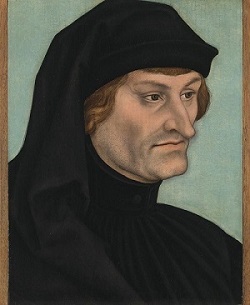About this blog

‘I am the secretary of our Gauronica, which is the name that I use for our town.’ These are the words of one of the most influential people ever to come from Groningen. He wrote them on 19 October 1480 in a letter to a friend from this northern region. Who was the writer? Roelof Huisman of Baflo. In his day and age, Latin was the international language of choice in Europe, so he called himself Rodolphus Agricola Phrisius. Through his most important follower, Erasmus of Rotterdam, Agricola profoundly influenced the educational system, and therefore society, throughout the whole of Europe.
No one ever adopted Agricola’s name for the city of Groningen. Which is a pity, since Gauronica is so much more poetic and melodious than Groninga, the coarse Latin version that is always used.
We are eagerly adopting Gauronica. Not just to honour the great Rudolph Agricola. Not just because it’s melodic. Not just to provide all of the citizens of his beloved Italy with a version of Groningen that they can actually pronounce.
Above all, we do so because Gauronica is entirely appropriate. It may simply be used as the Latin version of the name Groningen. This is how Agricola used it—in the singular form, since Groningen is unique. It can, however, also be considered a neuter plural word. Then, it would mean “things from Groningen”, a meaning that is currently expressed through the word Groningana, which is even more prosaic than Groninga.
Gauronica is the perfect title for this blog because, here, we’ll be writing about things from Groningen, that is to say: things from the Special Collections in the University of Groningen Library. About handwritten texts, the most ancient of which dates back to the second century. About printed texts, the oldest of which stems from 1473. About maps, letters, atlases. Of all periods, regions, and sorts. All in all, they amount to some 200,000 items. So, definitely plural. In other words, Gauronica.
These Gauronica do not always deal with Groningen or its surroundings. Far from it. They all do, however, relate to Groningen in at least one way: they now belong to the University of Groningen Library. The academy was founded here in 1614 and in 1615 its library started out with precisely zero books. We'd like to tell you about the things that we've acquired ever since—because all of it is worth reading. After all, we are a library, not a museum. Our books are not relics to be revered, but books to be used by human beings who can benefit from reading them. We take our lead from Agricola's and Erasmus's creed that ‘being human is something we have to learn.’
All of our books can be used, whether physically—in the city of Groningen—or digitally, anywhere in the world. Be it a medieval book of hours from the convent of Thesinge or an early edition of Horace printed in Venice or a 1940s copy from the clandestine press of famous local artist Hendrik Werkman. No exceptions, as books need to be used.
The founders of the University of Groningen adhered to this creed, too. Among them was Ubbo Emmius, the University’s first Rector Magnificus. Being a humanist himself, he shared Agricola's and Erasmus's perspective: ‘Human beings are not born but made human.’ This humanizing process should deal with language and behaviour first and foremost. It should start at birth because our words and deeds are greatly determined by habit. Well begun is half done, as they say. The process requires parents and teachers, including silent ones—i.e. books. Ideally, it should result in a society of well-made human beings that benefits everyone. Call it civilization.
The Special Collections in the University of Groningen Library testify to this ideal. So will Gauronica. Read for yourself. Scrolle, lege!
| Last modified: | 27 July 2021 10.54 a.m. |

